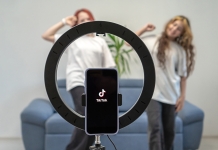Why recording every client consultation & treatment is vital
The importance of adequate record keeping & how it effects your business

Do you keep adequate records of all of your treatments? Would you be able to present these if a client made a complaint or claim against you? If the answer is no, then your AIT policy could be at risk as is any financial protection or legal support it offers.
In order to ensure your AIT insurance policy remains valid, as stated in your Policy Documents, you must keep records for each of your treatments for at least seven years following the last occasion on which treatment was given. This means that each and every time a client has a treatment, regardless of how many times they have had this treatment before, you must record details.
If you carry out treatments on children it is advisable that you keep their record card for at least seven years after they reach the age of majority (the age of 18).
What information do you need to record?
Each client should have their own record card, whether this be physical or digital (we'll cover this in more depth later). As a minimum, a record card should include the client's name, date of birth, address, telephone number, email address and an emergency contact.
This is all classed as ‘personal data'. There are specific guidelines for storing and processing personal data securely in line with data protection law, issued by the Data Protection Commission (DPC) which you must adhere to.
In relation to each individual appointment, the client record card must include details of the consultation before the treatment commences, what happens during the treatment, results of the treatment and after care advice.
You should also include the name of the treatment you have performed and be able to provide information on the specifics of products used and treatment protocol. If anything occurred during or at the end of the treatment that you wouldn't expect, detail this too.
The record should also include after care advice/instructions given to your clients.

Patch Testing
A vital element of record keeping is noting the results of all patch tests that you carry out. Any treatments that include tinting the skin and/or hair, including eyelashes and brows, require a patch test at least 24 hours before you carry them out for the first time. This applies to new and existing clients.
Your AIT insurance policy could be invalidated if you carry out a treatment that requires a patch test without doing so.
Taster treatments and demonstrations
If you offer taster treatments or perform treatments on volunteers at events or during training courses etc, you should record the name and brief details of the person, the date of session and condition being treated.
You should not perform treatments that involve skin and/or hair tinting on anyone who has not undertaken a patch test at least 24 hours prior.
How to record, store & use information
Whilst traditionally client record cards were literally physical pieces of paper or card with a client's information and treatment history hand written, these days there are also digital ways to record and safely store information. That said, keeping paper records which are stored securely is still acceptable. Ensure that any physical record cards are kept in a secure place with access limited, such as a lockable, fireproof box. These records should be treated as confidential and not shared outside of your organisation unless there is a lawful basis to do so.
Digital record keeping can be carried out using a salon management / appointment booking platform or app. These systems store all of your clients' information securely in one place, usually on the Cloud, linked to their appointment bookings, retail history etc. Should you ever need to provide the evidence from a client record card, you can quickly access it and download it.
When processing personal information such as that on your client record cards, you have a responsibility to keep it secure and private. Clients have a right to access and see this information (bear this in mind when making notes about clients). Do not use client information for anything other than recording their treatments unless you have expressly asked their permission beforehand and have this recorded.
Familiarise yourself with Data Protection Legislation and your obligations by visiting the website of the
Data Protection Commission (DPC).





